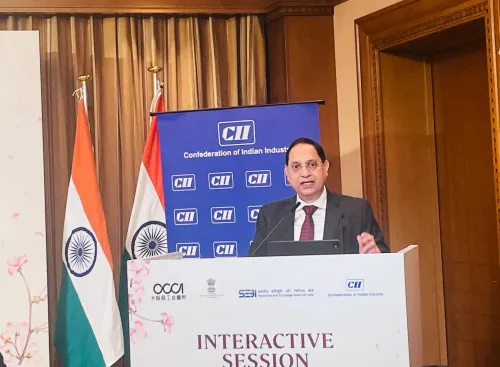How Does Demand Continuity Influence Business Growth for Indian Real Estate Firms?

Synopsis
Key Takeaways
- Strong launch pipeline reflects developer confidence.
- Mixed operational performance in the residential sector.
- Land transaction values have significantly increased.
- Ongoing demand supports full-year guidance.
- New business development is on a positive trajectory.
Mumbai, July 10 (NationPress) A robust pipeline of launches by major and mid-tier developers in India underscores a positive outlook on demand sustainability and enhances growth prospects for the medium term, according to a report released on Thursday.
While real estate companies in the residential sector have displayed a mixed operational performance in Q1 FY26, many publicly traded firms (both large and mid-sized) have made significant strides in business development, as highlighted by the report from Emkay Global Financial Services.
This progress is primarily attributed to a strong series of launches, bolstered by solid demand. Given the ongoing demand strength, companies have affirmed their full-year forecasts as they increase their launches.
"With positive foot traffic at project sites and sustained interest in newly launched developments, Emkay Global Financial Services predicts that responsible real estate companies will largely fulfill their FY26 pre-sales targets," the report noted.
According to a recent Anarock report, the total value of land transactions (comprising the top eight cities along with tier 2 and 3 cities) reached Rs 309 billion in H1 CY25, representing a 5 percent increase over the total transactions recorded in CY24.
The overall area involved in land transactions during this timeframe was 2,898 acres, reflecting a 15 percent rise compared to CY24.
"Out of these, 782 acres have been designated for Joint Development Agreements (JDAs). The development potential for the land transacted in H1 CY25 is estimated at 233 msf," the report stated, further asserting that as developers search for growth opportunities, the trend of land acquisitions is anticipated to persist.
Despite the mixed pre-sales outcomes, a consistent and encouraging trend of significant growth in new business development is observable within the real estate sector.
Conversely, companies like Lodha, Sobha, and Signature Global reported subdued performances, attributed to high baselines or limited launches during the quarter, according to the report.










